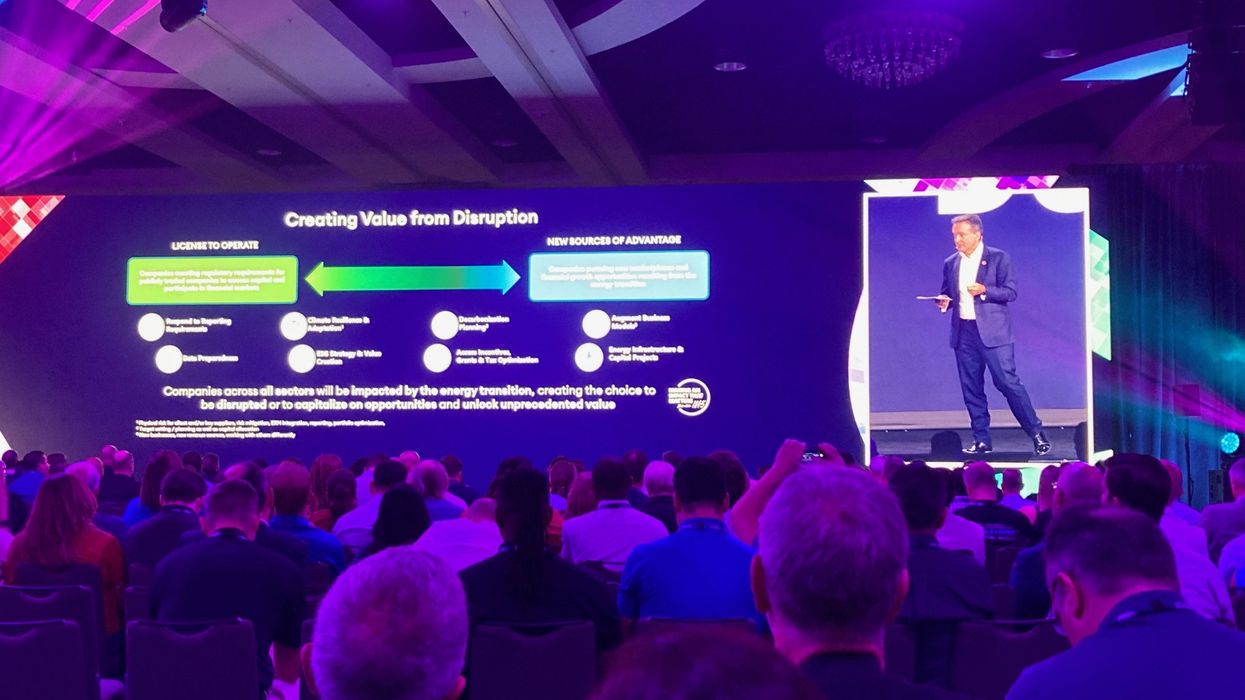The clean energy transition continuing to sweep the globe will give companies in every sector the choice to either be disrupted or to capitalize on new opportunities, a sustainability expert from Deloitte said in a session today at a conference in Orlando held by the enterprise resource planning (ERP) firm IFS.
While corporate chief sustainability officers (CSOs) are likely already tracking those impacts, the truth is that they will actually affect every aspect of operations regardless of people’s role in a business, said John O’Brien, managing director of Deloitte’s sustainability and climate practice.
For example, regulatory requirements on carbon emissions are expanding in every region, which means that even if a specific company doesn’t have to change its own practices, it will almost definitely need to flex to accommodate its partners and suppliers as they track scope 3 emissions or supply chain practices.
Likewise, companies are starting to challenge the classic concept of “force majeure” events than can cancel service providers’ contractual duties due to unforeseeable weather events. As the new argument goes, extreme weather patterns increasingly occur in accordance with climate scientists’ forecasts, so those hurricanes and wildfires are in fact foreseeable after all.
But one strategy for coping with the cost of those changes is to mine the power of the data that most companies will soon need to collect as part of their evolution. Instead of simply tracking its trucks to trim their routes and emissions, a transportation company could use the same data to manage their maintenance and fuel consumption.
“The climate management transition is going to be a massive disruption, but with that comes massive opportunity,” O’Brien said from the keynote stage at the “IFS Unleashed” show. “Don’t waste compliance efforts just on compliance, use it to create new value. You’re collecting all that new data, so use it!”
















